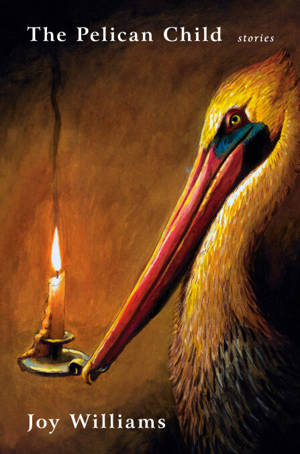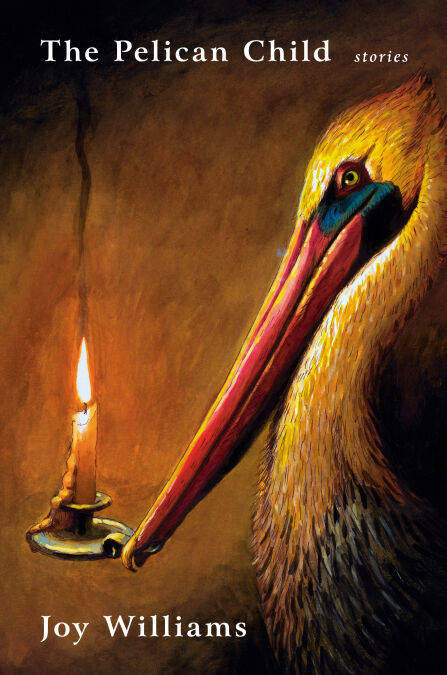
- Afhalen na 1 uur in een winkel met voorraad
- Gratis thuislevering in België vanaf € 30
- Ruim aanbod met 7 miljoen producten
- Afhalen na 1 uur in een winkel met voorraad
- Gratis thuislevering in België vanaf € 30
- Ruim aanbod met 7 miljoen producten
Zoeken
Omschrijving
LONGLISTED FOR THE NATIONAL BOOK AWARD • FINALIST FOR THE PEN/JEAN STEIN BOOK AWARD • NAMED A NOTABLE BOOK OF THE YEAR BY THE WASHINGTON POST • A razor-sharp new collection of stories of visionary childhood misfits and struggling adult dreamers from this legendary writer of “perfectly indescribable fiction . . . To read Williams is to look into the abyss” (The Atlantic).
“An American master is back with crystalline stories that map the personal and political minefields of her unmoored characters. Williams blends everyday dramas with surreal imagery, her voice and range inspiring awe.” —Boston Globe
“Night was best, for, as everyone knows, but does not tell, the sobbing of the earth is most audible at night.” “Men are but unconscious machines and they perform their cruelties so effortlessly.” “Caring was a power she’d once possessed but had given up freely.” The sentences of Joy Williams are like no other—the coiled wit, the sense of a confused and ruined landscape, even the slight chortle of hope that lurks between the words—for the scrupulous effort of telling, in these eleven stories, has a ravishing beauty that belies their substance. We meet lost souls like the twin-sister heiresses of a dirty industrial fortune in “After the Haiku Period,” who must commit a violent act in recompense for their family's deeds; in “Nettle,” a newly grown man who still revolves in a dreamscape of his childhood boarding-school innocence; the ghost of George Gurdieff, on an obsessive visit to the Arizona birthplace of the shining Susan Sontag; the “pelican child” who lives with the bony, ill-tempered Baba Yaga in a little hut on chicken legs.
All of these characters insist on exploring, often at their peril, an indifferent and caustic world: they struggle against our degradation of the climate, of each other, and of honest human experience (“I try to relate only to what is immediately verifiable,” says one narrator ruefully), possibly in vain. But each brief, haunted triumph of understanding is celebrated by Williams, a writer for our time and all time.
“An American master is back with crystalline stories that map the personal and political minefields of her unmoored characters. Williams blends everyday dramas with surreal imagery, her voice and range inspiring awe.” —Boston Globe
“Night was best, for, as everyone knows, but does not tell, the sobbing of the earth is most audible at night.” “Men are but unconscious machines and they perform their cruelties so effortlessly.” “Caring was a power she’d once possessed but had given up freely.” The sentences of Joy Williams are like no other—the coiled wit, the sense of a confused and ruined landscape, even the slight chortle of hope that lurks between the words—for the scrupulous effort of telling, in these eleven stories, has a ravishing beauty that belies their substance. We meet lost souls like the twin-sister heiresses of a dirty industrial fortune in “After the Haiku Period,” who must commit a violent act in recompense for their family's deeds; in “Nettle,” a newly grown man who still revolves in a dreamscape of his childhood boarding-school innocence; the ghost of George Gurdieff, on an obsessive visit to the Arizona birthplace of the shining Susan Sontag; the “pelican child” who lives with the bony, ill-tempered Baba Yaga in a little hut on chicken legs.
All of these characters insist on exploring, often at their peril, an indifferent and caustic world: they struggle against our degradation of the climate, of each other, and of honest human experience (“I try to relate only to what is immediately verifiable,” says one narrator ruefully), possibly in vain. But each brief, haunted triumph of understanding is celebrated by Williams, a writer for our time and all time.
Specificaties
Betrokkenen
- Auteur(s):
- Uitgeverij:
Inhoud
- Aantal bladzijden:
- 176
- Taal:
- Engels
Eigenschappen
- Productcode (EAN):
- 9780525657590
- Verschijningsdatum:
- 17/11/2025
- Uitvoering:
- E-book
- Beveiligd met:
- Adobe DRM
- Formaat:
- ePub

Alleen bij Standaard Boekhandel
+ 16 punten op je klantenkaart van Standaard Boekhandel
Beoordelingen
We publiceren alleen reviews die voldoen aan de voorwaarden voor reviews. Bekijk onze voorwaarden voor reviews.







